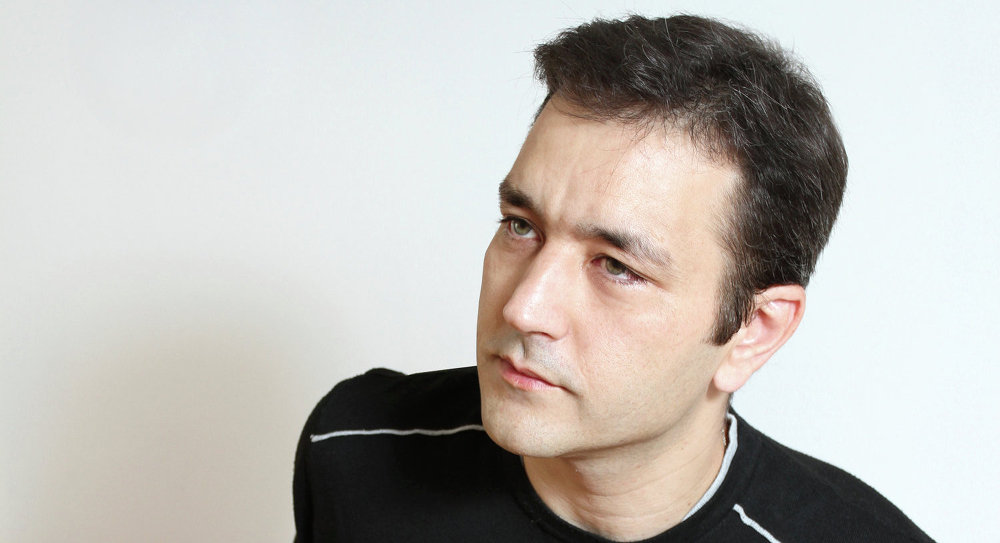— Why did you decide to become a musician?
— I was born into a very musical family if I may say so. My mother always bought us records by Stevie Wonder, Julio Iglesias and local singers. My parents come from Morocco, so I listened to a lot of Moroccan, Arabian and Egyptian music. I have been familiar with various musical styles since I was very young. We were always exposed to music. As a child, I tried to sing. I really enjoyed performing and loved the stage.
My brother began learning the guitar and so I also learned. He showed me some techniques. My guitar period lasted about a year and a half, and then I heard the popular Israeli rock band Mashina. The electric bass fascinated me. That bass sounded great, with its low tone and all. The bassist, now my good friend Michael Benson, played really rich base lines. So I moved to bass.
I fell in love with jazz thanks to Jaco Pastorius after my brother introduced me to his music. That made me start practicing every day, improving and perfecting my playing. I realized why I was so attracted to bass: it's a dominant instrument, the one that creates the groove, maintains the harmony. I'm drawn to the responsibility of the bassist.
— What does jazz mean to you?
— That's a good question. To me, jazz is intellect. You can tell a lot about a person just by listening to him play jazz. I would say the more sophisticated your musical taste is, the higher the probability that you listen to jazz or modern classics. Jazz could probably be described as a new cycle of evolution in postmodern music.
Also, jazz for me is imagination (like Miles Davis and everyone who played after him). Jazz is freedom.
- What kind of music do you listen to when you're at home for example?
— Lately I've been listening to Shostakovich, Nicolas Slonimsky, and a lot of modern music which is hard to describe. It isn't jazz, but it isn't classical either, probably a new era of music. I'm also a big fan of Jaco Pastorius, I listen to him all the time, and of course John Coltrane, Charlie Parker, Michael Brecker, Chick Corea, Level 42 and many others.
- It's amazing that you would mention Shostakovich. What do you think of Russian music in general?
— Russian musicians are very passionate and romantic, even if they are trying to hide it. I honestly love Russian music. Rimsky-Korsakov, Shostakovich and Rakhmaninov are simply incredible; they actually elevated music to a whole new level. They have a distinctive sound.
I played with an orchestra for a long time, with Russian classical filling the bigger part of our repertoire. Russian classical music is full of drama and passion — it was composed by people with big hearts and open souls.
— Would you agree that blues laid the foundation for rock, and jazz — for newer heavy music styles?
— I always said that blues created rock'n'roll, which grew into rhythm'n'blues, and eventually accelerated into rock. As for modern bands, I've heard some very progressive ones. They definitely borrowed something from jazz — its complexity I'd say. Maybe I'm still too young, but I think advanced rock or advanced heavy metal are no longer rock or metal, but they aren't jazz either. They are probably a new branch of fusion, 80% heavy and 20% jazz.
— Would you describe yourself as a happy man?
- Absolutely! I have a chance to do what I like, to play what I want with the musicians I pick. I have an album close to release, and a tour scheduled to promote it. In a few weeks I'm moving to New York to play with great musicians including Ray Peterson, who was Jaco Pastorius' good friend and follower.
- Of the musicians who have ever lived, who would you have liked to played with?
— I'd be thrilled to play with Chick Corea and Herbie Hancock — this is my dream. It would be interesting to cooperate with Mike Stern, one of the greatest jazz guitarists. And Randy Brecker. I am also a fan of funk, so I'd also pick Maceo Parker. This list could go on forever.
- What place does jazz occupy in the modern music industry?
— It's changing dramatically now; many new things are happening. There are a lot of amazing musicians in Europe, and in Russia also for that matter. Both regions are open to music and are constantly experimenting with it, adding new colors. Modern jazz, I think, is moving in the right direction, and I would say it is gaining momentum.
— How will it change in 50 or 60 years?
— Oh I don't know. But if it keeps changing at this pace it's going to be something entirely new. Jazz will look completely differently from now.
Bebop will stay though — it'll be played in all eras, like classical music.
The future of jazz, I think, largely depends on jazz festivals, which can give it the right impetus.
